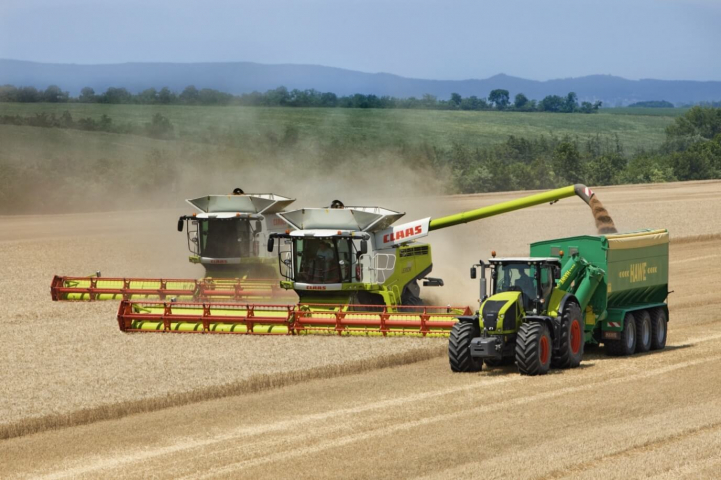
The 16M EUR Agri-Food Robotics Digital Innovation Hub will lead to transformational changes in agriculture powered by advances in robotics, artificial intelligence, and big data.
Modernising farming for a sustainable future
The EU agri-food sector is at a crossroads. Societal pressures require increasingly environmentally friendly production, at lower costs. At the same time, the number of labourers is declining and younger generations are not entering the profession. If Europe is to continue producing for its population, thereby reducing imports while growing jobs in the sector in a sustainable fashion, a modernisation of farming is needed.
Agriculture robots
Precision farming will allow European farmers to grow what is needed, with little waste in produce, water, and pesticides, and using less manual labour. Farms of the future will be high-tech ventures that are appealing for the younger generations. Robotics, combined with AI and big data, has a big part to play. Drones can serve as an eye in the sky to assess plant growth, irrigation, and health. Self-driving technology can turn existing machinery needed to plow, seed, and harvest fields into autonomous robots. Advanced sensing allows for the precise removal of weeds without the need to spray entire fields. New robots are being designed to perform complex tasks such as picking delicate strawberries. Combining different types of robots could allow for a mostly automated solution to crop farming. Beyond crops, robots are also being used for livestock. Milking robots are one of the most prominent robots in the world, with a market expected to double to 2.48 Million by 2023. The latest versions allow cows to milk on demand, rather than spend large amounts of time in a milking facility. Other tasks include sweeping the floor of barns, or transporting feeder. And it’s not just about large farms, robotic solutions are also being designed for personal gardens, or urban vertical farms.
European Strength
Europe has world leading expertise in agri-food robotics. Projects include:
SWEEPER - Sweet pepper harvesting robot
CROPS - Intelligent sensing and manipulation for sustainable production and harvesting of high value crops
PANTHEON - Precision farming of hazelnut orchards Flourish Aerial data collection and analysis, and automated ground intervention for precision farming
Flourish - Aerial data collection and analysis, and automated ground intervention for precision farming
ROMI - Robotics for microfarms
ABC Project - Automated brassica harvesting in Cornwall
IoF2020 - Internet of Food & Farm 2020
APOLLO - Advisory platform for small farmers
Digital Innovation Hubs
Given the pressing societal need, and expertise in European agri-food robotics, it’s clear the time is right to bolster the use of this technology at a regional level. This will be done through a Digital Innovation Hub, a one-stop-shop providing services to companies and farmers in a region. Services include raising awareness about the technology and providing training and mentoring. The hub will work with users to build a vision and strategy around the technology, and will provide access to specialist expertise and infrastructure to develop and test their robots solutions. Access to funding and investor readiness services will enable scale up.
Impact
Digital innovation hubs will ultimately increase the deployment of agrifood robots through the formation of supply chains around platforms and modules, the introduction of cross-industry-based standards for modules and systems, the generation of new businesses based around platform
supply, and by leveraging other sources of regional and national funding.
Stakeholders
Advancing the use of robotics in the farming sector can only be done by integrating across all stakeholders. European population is set to benefit most through the improvement in production quality and quantity of agri-food in an environmentally sustainable way and at lower costs. The
digital innovation hub will also bring together stakeholders from across the farming and technology sectors, including farmers, equipment manufacturers, and robotics, AI and data experts. The societal impact will bring interest from the legal sector and policy makers.
Beyond regions
Beyond building regional expertise, the digital innovation hub will create a pan-European network that can leverage regional expertise to introduce European-wide innovation.
This work has received funding from the European Union’s Horizon 2020 Programme under the RockEU2 project, grant agreement n° 688441.